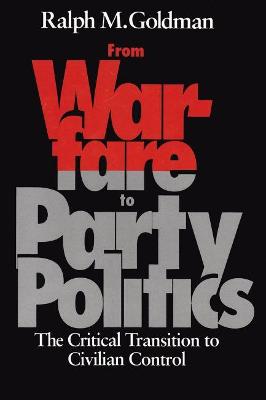This book describes how Mexico, the United States, and the United Kingdom have evolved from nations in which elite conflicts are solved through violence and internal wars into societies in which the political structure is so effective in dealing with internal conflicts through non-violent methods that civil war is now virtually impossible. All three of these nations eliminated internal wars after experiencing a similar shift in the relative influence of three political institutions: the military establishment, the representative assembly, and the party system. Before this "critical transition", the military had the most power, the system of representation was weak, and the political system was non-existent or unstable. Often after centuries of turbulence, these countries reached this turning point once the following three conditions were established: the military system became centralized, the representative body expanded to include most of the principal constituencies, and a political party system emerged and stabilized.
The resulting political system in all three nations is one in which civilians control the military and in which non-violent competition within the party system replaces civil and other forms of internal warfare. Juxtaposing the development of Europe's military, representative, and party institutions, the author argues that the European political community is advancing toward the same critical transition. He predicts that the European trans-national parties will continue to link popular sovereignty to the management of the European Parliament, which will exercise authority over the European Defence Community once it is established. Nascent trans-national political parties throughout the world hold much promise for displacing international warfare.
- ISBN13 9780815625001
- Publish Date 1 December 1990
- Publish Status Active
- Publish Country US
- Imprint Syracuse University Press
- Format Hardcover
- Pages 268
- Language English
